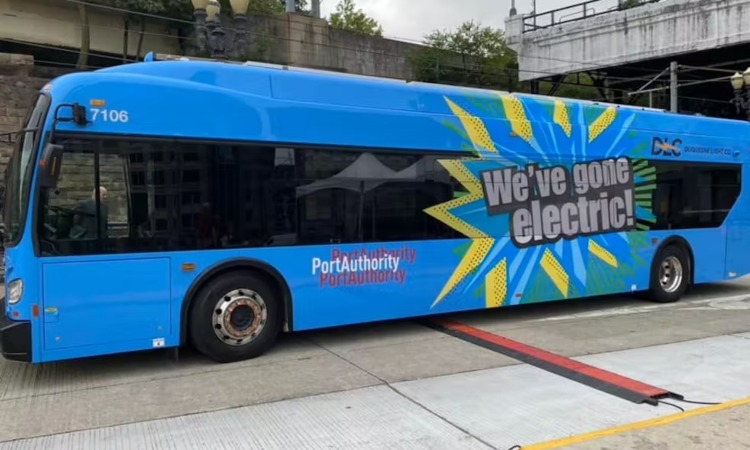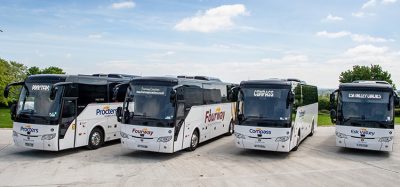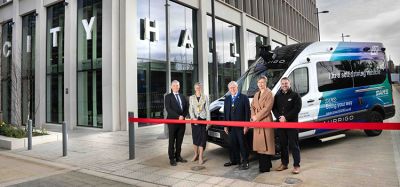Pittsburgh Regional Transit to accelerate transition to zero-emission bus fleet
- Like
- Digg
- Del
- Tumblr
- VKontakte
- Buffer
- Love This
- Odnoklassniki
- Meneame
- Blogger
- Amazon
- Yahoo Mail
- Gmail
- AOL
- Newsvine
- HackerNews
- Evernote
- MySpace
- Mail.ru
- Viadeo
- Line
- Comments
- Yummly
- SMS
- Viber
- Telegram
- Subscribe
- Skype
- Facebook Messenger
- Kakao
- LiveJournal
- Yammer
- Edgar
- Fintel
- Mix
- Instapaper
- Copy Link
Posted: 9 September 2022 | Intelligent Transport | No comments yet
With plans to transition to a zero-emission bus fleet by 2045, Pittsburgh Regional Transit expects to spend an estimated $1 billion over the next 20 years, as it replaces its diesel buses with green fuel vehicles.


Credit: Pittsburgh Regional Transit
Pittsburgh Regional Transit (PRT) has announced its plan to transition to a zero-emission bus fleet by 2045. The public transit agency will begin to increase its replacement of diesel buses with zero-emissions buses beginning in 2025 and will only purchase zero-emissions buses after 2032.
In total, Pittsburgh Regional Transit expects to spend an estimated $1 billion over the next 20 years on the transition.
“We recognise our responsibility to move as quickly as possible to replace our fleet with zero-emissions vehicles to improve the health, safety, and welfare of the communities we serve,” said PRT CEO Katharine Kelleman. “This investment in our system touches upon so many of the values that will propel our region toward a more equitable and sustainable future.”
Transitioning to a zero emissions bus fleet will greatly improve the region’s overall air quality, while continuing to provide riders with reliable and efficient service. Although riding public transportation is significantly better for the environment than driving in a personal vehicle – even when it’s powered by a diesel-powered engine – PRT projects that transitioning to a zero-emissions fleet will even further reduce greenhouse gas emissions.
“In Allegheny County, emissions from vehicles, like buses, contribute to air pollution and the quality of air we breathe,” said Allegheny County Health Department Director Dr. Debra Bogen. “We anticipate that PRT replacing its current buses with a zero-emission fleet will have a positive effect on the area’s air quality and health.”
MARTA awarded federal grant for new electric buses and charging infrastructure
PRT put its first two battery-electric buses in service in 2020 and followed up with six battery-electric buses in 2021. In addition, PRT’s Board recently approved funding for another 15 battery-electric buses that will operate on the future Downtown-Uptown-Oakland bus rapid transit (BRT) project. The agency has a fleet of 730 buses.
While PRT plans to deploy battery-electric buses in the initial years of the transition, the agency will continue to evaluate developments in hydrogen fuel cell vehicles and other technologies. This approach will enable PRT to purchase the newest, smartest technology as advancements develop and gives the agency time to install infrastructure, such as charging stations.
The transition to a zero-emissions fleet will include retrofitting each of PRT’s four bus garages and maintenance facility, as well as training its workforce of 1,400 bus operators and 800 mechanics on the new technology.
Electric buses cost about 60 per cent more than their diesel counterparts, with the average cost of a 40-foot electric bus being approximately $950,000. Therefore, federal funding is expected to be used to make up the difference in cost for the vehicles, employee training and charging infrastructure.
If you liked this, you may also be interested in:
▶ Transdev begins operation of new zero-emission buses in northern Stockholm
Related topics
Air Quality, Alternative Power, Passenger Experience, Public Transport, Sustainable Urban Transport
Related modes
Bus & Coach
Related cities
Pennsylvania, Pittsburgh
Related countries
United States
Related organisations
Pittsburgh Regional Transit (PRT)
Related people
Dr. Debra Bogen, Katharine Kelleman








